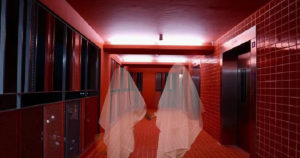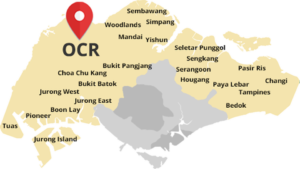
INTRODUCTION
Generally, most parents leave their estate to their children. However, what happens when a child should predecease you? What then, becomes of his share will depend on how your Will is drafted.
RE WILL OF LOKE SOH LUI, DECEASED [1997] SGHC 346
Such was the scenario in Re Will of Loke Soh Lui, deceased [1997] SGHC 346. Loke Soh Hui (or the “testatrix”) died with a Will and a need for clarification arose as to certain clauses of her Will because one lawful son of hers, Chua Boon Unn, had predeceased her and this required considering whether the gifts that Chua Boon Unn was entitled to under her Will could be saved for his children.
FACTS
An originating summons (“OS”) was taken up by the trustees of the will of Loke Soh Hui for the High Court to determine the construction of clauses 4, 7 and 8 of the will.
The relevant clauses of the will read as follows:
“This is the Last Will and Testament of Loke Soh Lui of No 1 Chatsworth Road, Singapore, married woman.
4. I direct my Trustees to set apart a sum of $1,500 (Dollars One thousand five hundred only) in cash which sum is to be used for my husband’s funeral expenses including the costs of his grave and tombstone (if such expenditure should be necessary and should not be made by his estate) but if such expenditure in unnecessary then I direct my trustees to divide the said sum of $1,500 (Dollars One thousand five hundred only) equally between all my natural and lawful sons.
7. With regard to all my jewellery, trinkets, wearing apparel, and effects, I give and bequeath the same as follows:
(a) Jewellery to the value of $2,000 (Dollars two thousand) to my son Chua Boon Peng.
(b) Jewellery to the value of $2,000 (Dollars two thousand) to my daughter Chua Swee Ee.
(c) Jewellery to the value of $2,000 (Dollars two thousand) to my daughter Chua Swee Lieu.
(d) Jewellery to the value of $2,000 (Dollars two thousand) to my daughter Chua Swee Sim.
And all the rest and residue of the said jewellery, trinkets, wearing apparel and effects equally between my two sons Chua Boon Unn and Chua Boon Yew and my daughter Chua Swee Eng and I direct that my Trustees shall have a valuation made of the said jewellery, trinkets, wearing apparel and effects and that my trustees shall apportion and allot the said jewellery, trinkets, wearing apparels and effects amongst and between my said children in accordance with such valuation as they shall in their absolute discretion think fit in accordance with the foregoing.
8. I devise and bequeath the rest and residue of my moveable and immovable property of any nature or kind whatsoever to my Trustees upon trust to sell call in and convert the same into money and with and out of the proceeds thereof and with and out of my ready money to pay my just debts and testamentary expenses and to divide the balance among my children Chua Boon Unn, Chua Boon Yew and Chua Swee Eng or such of them as shall survive me in equal shares.
In witness whereof I have hereunder set my hand to this will this 16th day of March One thousand nine hundred and thirty-nine (1939).”
The questions for the determination as prayed for in the OS are as follows:
(a) Whether upon the true construction of clause 4 of the will of the testatrix that the sum of $1,500 mentioned therein falls to be divided equally between:
i. all the testatrix’s “natural and lawful” sons living at the date of death of the testatrix, or
ii. all the testatrix’s natural and lawful sons including the issue of any deceased “natural and lawful” son whether or not such “natural and lawful” son predeceased the testatrix, or iii. all the testatrix’s “natural and lawful” sons including the estate of any deceased “natural and lawful” son whether or not such “natural and lawful” son predeceased the testatrix.
(b) Whether upon the true construction of clause 7 of the will of the testatrix that
i. the gift of the balance of the jewellery, trinkets, wearing apparel and effects to Chua Boon Unn lapsed as he predeceased the testatrix, or
ii. if this honourable court shall be of opinion that the gift to the said Chua Boon Unn did not lapse then whether the gift falls to be divided between Chua Boon Yew, Chua Swee Eng and the estate of Chua Boon Unn; or
iii. if this honourable court shall be of opinion that the gift to the said Chua Boon Unn did not lapse then whether the gift falls to be divided between Chua Boon Yew and Chua Swee Eng and the lawful issue of Chua Boon Unn living at the date of death of the testatrix.
(c) Whether upon the true construction of clause 8 of the will of the testatrix that –
i. the gift to the testatrix’s son Chua Boon Unn lapsed as he predeceased the testatrix, or
ii. if this honourable court shall be of the opinion that the gift to the said Chua Boon Unn did not lapse then whether Chua Boon Unn’s lawful issue living at the date of death of the testatrix is entitled to his share in the residuary estate of the testatrix, or
iii. if this honourable court shall be of the opinion that the gift to the said Chua Boon Unn did not lapse then whether the estate of Chua Boon Unn would be entitled to his share in the residuary estate of the testatrix.
When the testatrix executed the Will, she had 3 sons and 4 daughters, all of whom had been born and were alive at the time the will was made.
One of the sons, Chua Boon Unn, predeceased the testatrix. He died leaving behind his widow, Mdm Fong Lai Wah, 5 daughters and 1 son, all of whom survived the testatrix and are still living as at the time the OS was taken up.
Because the lawful son of the testatrix, Chua Boon Unn, had died before his mother, the interpretation of the will had become less straightforward.
Substantial sums of money were involved and hence the parties wanted the court to determine the true constructions of those clauses in the Will to enable the executors to properly administer the estate and to avoid family conflict in future over the distribution of the assets in the estate.
The net value of the assets was approximately $71.5m, the bulk of which were in 4.37 million Cycle and Carriage Ltd shares and two-time deposits of $16.5m. Jewellery amounted to some $254,500. Thus, the residue in the will swelled to become the major part of the assets for distribution by the time the testatrix died.
THE LAW
Chan Seng Onn JC, sitting in the High court, held that section 26 of the Wills Act is the relevant legislation that would apply in this case. Section 26 of the Wills Act deals with the death of an issue during the lifetime of a testator and states as follows:
“Where any person being a child or other issue of the testator to whom any real or personal estate shall be devised or bequeathed for any estate or interest not determinable at or before the death of that person shall die in the lifetime of the testator leaving issue, and any such issue of that person shall be living at the time of the death of the testator, that devise or bequest shall not lapse, but shall take effect as if the death of that person had happened immediately after the death of the testator, unless a contrary intention shall appear by the will. [emphasis added]”
The learned judge pointed out that because of the way in which section 26 of the Wills Act is phrased, there is a distinction drawn by the law between class gifts (a gift made to a group of persons with such individuals unidentified) and gifts to specific individuals.
He held that when a testator intends to give to his children (or “named children”) and not a class, with the gift falling into the estate of those named children should any of them predecease him leaving his children living at the time of the testator’s death, the testator need not express that intention in the will as section 26 of the Wills Act will operate to ensure that the gift will be saved to the estates of those named children predeceasing the testator. The children of such deceased children may then benefit under the estate. Of course, the testator is not prevented from expressing that intention in his will if he wishes to do so as a matter of caution. On the other hand, when a testator intends the gifts to the named children to lapse should they predecease him, then the testator has to spell out that intention in his will. With that clear contrary intention expressed, section 26 of the Wills Act will not operate and his intention as expressed in the will would prevail.
When a testator intends the gift to be given to a class of persons, and intends that the share of the member of the class predeceasing him is to lapse and be redistributed to the other members of that class surviving him, it is sufficient for him to simply state in the will that the gift is to that class of persons without having to specify the aforesaid manner of distribution.
Chan Seng Onn JC also emphasized that section 26 of the Wills Act does not apply where the gift is to named individuals who are not the children of the testator. The gift will lapse and fall into the residue if such an individual predeceases the testator unless the testator has stated clearly in the will that there is a gift over should that named individual predecease him.
In addition, unexpressed intentions are irrelevant. The learned judge adopted the position stated in paragraph 371 of Halsbury Laws of England vol 50 (Butterworths, 4th Ed) that:
“The expressed intention is in all cases taken as the actual intention, whatever the testator in fact intended, and as a general rule the court may not give effect to any intention which is not expressed or implied in the language of the will.”
CONSTRUCTION OF THE WILL OF THE TESTATRIX
With regards to clause 4 of the will, Chan Seng Onn JC sitting in the High Court held that there should be no difficulty in construing that the gift of $1,500 in clause 4 of the will is a class gift which is to be divided “equally between all my [the testatrix’s] natural and lawful sons”. The learned judge found that the words “all my natural and lawful sons” are intended to delineate the limits to that class of persons bearing a certain relationship to the testatrix to take the gift. Those entitled to take will be the “natural and lawful” sons of the testatrix living as at the date of death of the testatrix. Hence, neither Chua Boon Unn nor his estate would be entitled to take under clause 4.
Clause 7 of the will deals with the movable assets like jewellery, trinkets of the testatrix. After providing for specific bequests of jewellery to the value of $2,000 to each of the testatrix’s named son and three daughters, clause 7 provides that the residue of the jewellery etc were to be given and bequeathed equally amongst her 2 sons Chua Boon Unn and Chua Boon Yew and her daughter Chua Swee Eng.
The learned judge found that on the plain construction of clause 7 of the will, the residuary gift here could not be construed as a class gift but was a gift to the individually-named sons and daughter. There was no contrary intention in the will that there could not be a gift over in the event of the death of any of the residuary legatees during the lifetime of the testator. Since Chua Boon Unn predeceased the testatrix leaving issue living at the time of the testatrix’s death and since there was no contrary intention, section 26 of the Wills Act applied. Section 26 of the Wills Act prevented the gift to Chua Boon Unn from lapsing and required that the gift took effect as if the death of Chua Boon Unn happened immediately after the death of the testatrix.
Chan Seng Onn JC was, however, quick to add that the estate of Chua Boon Unn received this share of the gift strictly by virtue of section 26 of the Wills Act and not because he found that the testatrix had any general intention at the time of making the will to specifically provide for her grandchildren in this way. He was of the opinion that the testatrix did not even address her mind to this, even though the law as it is was existing at the time of her making the will.
Finally, clause 8 deals with the residuary estate (both movable and immovable properties) which happened to be the bulk of the estate at the time of the testatrix’s death.
The material words in that clause were:
“I devise and bequeath the rest and residue of my moveable and immovable property of any nature or kind soever to my trustees upon trust… to divide the balance among my children Chua Boon Unn, Chua Boon Yew and Chua Swee Eng or such of them as shall survive me in equal shares.”
Chan Seng Onn JC held that these words were specifically and intentionally included and were to bear the ordinary meaning that they were intended to have. The word “or” also had significance. It indicated that either “Chua Boon Unn, Chua Boon Yew and Chua Swee Eng” shall take in equal shares or “such of them as shall survive” she shall do so. “Survive” in its ordinary meaning and in the context of clause 8 of the will simply mean that those who were living both at and after the postulated event, which is the date of the testatrix’s death. As the words “such of them as shall survive me” preceded the words “in equal shares”, the survivors Chua Boon Yew and Chua Swee Eng, who were living both at and after the death of the testatrix, therefore took the residuary estate in clause 8 in equal shares between them, to the exclusion of Chua Boon Unn who did not survive the testatrix.
Finally, the learned judge noted that even though Chua Boon Unn had predeceased the testatrix by some 3 years, the testatrix did not alter her will to provide for the estate or issue of Chua Boon Unn. In addition, the testatrix had made her Will some 56 years before her passing during which time she must have had the opportunity to change her will as she witnessed her assets and the residue in clause 8 of her will grow, her children get married, and her children have their own children. Certain children might have lost favour with her and others may have since then gained favour. She might have loved certain grandchildren (or even great-grandchildren) more than certain of her own children. The relative sizes of the various gifts in the different clauses of the will might have changed beyond recognition since and yet, none of these was and could be taken into account because she did nothing to change her Will, and it was not for the court to posthumously rectify such failure.
CONCLUSION
As can be seen, the court relies on the law and/or certain accepted rules of construction as at the time a Will was drafted to determine the real intention of the testator. It matters not what was, in fact, the intention of the testator. It is therefore important for one to seek proper legal advice from someone who has knowledge of the law concerning Wills to assist in the drafting of your Will.
In addition, this case also illustrates the importance of regularly updating one’s Will. One should not take the stance that a Will is something that you do only once in a lifetime. Instead, the Will should be a living document, evolving with you as you go through life. It should be updated at regular intervals, to take into account changes in personal circumstances, for example, deaths in the family and additions to the family.
Jolene Chia
Advocate & Solicitor
[Note: The above article is intended to provide general information. Although we endeavour to ensure that the information contained herein is accurate, we do not warrant its accuracy or completeness or accept any liability for any loss or damage arising from any reliance thereon. The information herein should not be treated as a substitute for separate legal advice concerning particular legal situations. If you would like to obtain advice, please do not hesitate to get in touch with Gary at 9107 5225 at M/S Sim Mong Teck & Partners.]
Enjoy what you have been reading? Join our mailing to get valuable insights delivered to your inbox today.



